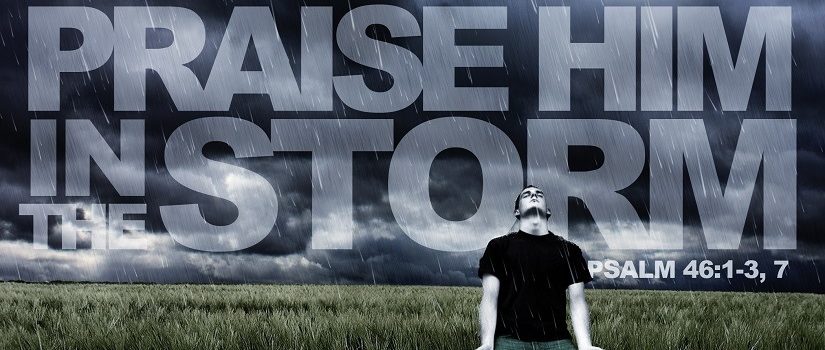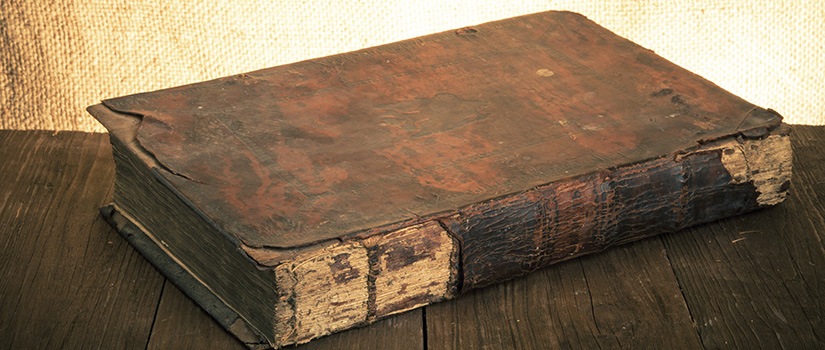A Study Of The Life Of Jacob
By James L. Thornton
The experiences of the Saints and Bible Characters, both Godly, and ungodly, are useful guide-posts on the Heavenly Road. They help by counsel, caution, inspiration, comfort, and warning. A wise traveler will not despise any of them, but will listen, and watch, and learn from them.
If a traveler is about to cross South America from West to East, he will not fail to ask what were the fortunes and experiences of those who have already made that perilous journey.
He would avail himself of maps they composed, learn what streams to expect, what was the climate, how difficult the mountains, the jungle, the reptiles, the animals, and people, he will come across. He would ask, are there any roads or trails to follow?
He will learn from their mistakes and their sufferings what to avoid. He will learn from their successes how far he should tread in their footsteps. The journey is not as difficult now as it was to the First Adventurer.
A similar thing is this of our Heavenly Journey. Others have passed this way before us, and now we are indebted to them for the record of their different and numerous experiences.
They tell us how they climbed The Hill Of Difficulty.
They tell us how they were overtaken by the foe unwarily.
They tell us how they fought, and by what method they conquered.
They tell us how at times Spiritual Drowsiness crept over them.
They tell us how they bemoaned their folly;
They tell us how they aroused themselves afresh and journeyed on.
Through their experiences, we discover that these imperfections are not peculiar to ourselves.
We see also the ones who went astray.
We see those who gave up in time of difficulty.
We see those who fought against God and against His People.
But above all, those who won the victory over all odds and are enrolled in Heaven’s Hall Of Fame mentioned in Hebrews Chapter 11.
In these lessons, we want to discuss one of my favorite Bible Characters, Jacob. I have heard Jacob maligned, yes assassinated, by so many preachers and teachers that I thought it’s good to bring something about Him to our attention.
After all, Jesus said that one day we would get to sit down with Him in the Kingdom Of Heaven (Matthew 8:11). I want to speak well of Him so that I will not be embarrassed when that great day comes. There are those who have spoken so harsh and unsympathetic of Him that they may need to apologize to Him. After all, the whole Bible story turns around him and his family (the Children of Israel) after Genesis 28. Everything below this point is about Jacob’s family.
Jacob Before Pharaoh:
Our scripture that we want to use as a starting point in this study is found in Genesis 47:7 “And Joseph brought in Jacob his father, and set him before Pharaoh: and Jacob blessed Pharaoh.
8. And Pharaoh said unto Jacob, How old art thou?
9. And Jacob said unto Pharaoh, The days of the years of my pilgrimage are a hundred and thirty years: few and evil have the days of the years of my life been, and have not attained unto the days of the years of the life of my fathers in the days of their pilgrimage.
10. And Jacob blessed Pharaoh and went out from before Pharaoh.
The chapter or two before this reading Joseph had revealed himself to his brethren, and then made arraignments to have his father Jacob and his family brought down to Egypt to live during the time of the famine. (Genesis 45, 46)
This was a new experience for Jacob because he had never been to town before. I’m sure the sights that he saw, as his son Joseph showed him around in Egypt, inspired awe in Jacob. For Jacob was a man of the desert, living in tents, never having seen stone buildings and temples and pyramids that seemingly reached to the sky.
At this particular time, Egypt was the richest and most powerful Nation on Earth. The Pharaohs ruled with unlimited authority. No one came into their presence uninvited. And when one came before him he knelt on the throne and did obeisance to him. One did not turn his back to him as he walked out of his presence but backed away until they reached the entrance of the room. Everyone was subject to Pharaoh’s whim.
We could be impressed by the graciousness of Pharaoh as Joseph presented his family to him. We may believe that the conduct of Pharaoh was mostly due to the effect of Joseph’s ministry and personal example of his religious life. It is a fitting testimony to the power of character.
Genesis 47:8. And Pharaoh said unto Jacob, How old art thou?
As the old Patriarch is presented He plainly impressed the Pharaoh as being extremely aged. Skin wrinkled and brazened by long years laboring in the sun, hair, and beard white as snow. Perhaps indicating that the Centenarian was a great rarity then among the Heathen Nations.
Genesis 47:9. And Jacob said unto Pharaoh, The days of the years of my pilgrimage are a hundred and thirty years: few and evil have the days of the years of my life been, and have not attained unto the days of the years of the life of my fathers in the days of their pilgrimage.
Jacob’s life fell short of that of His Ancestors in respect of duration (175 years of Abraham, His Grandfather, 180 years of Isaac, His Father), though it greatly surpassed theirs in respect of the miseries that were crowded into it.
The Old Man’s Blessing:
Genesis 47:10. “And Jacob blessed Pharaoh (as he had done on entering the Royal Presence), and went out from before Pharaoh.”
Jacob’s blessing was a valuable gift. Once before He had sent a present to one whom He regarded as of Vice-Regal Dignity (Esau, Genesis 33:8-11); But now, when standing in the Royal Presence of Pharaoh, He does not think of material offerings, but presents what must ever be beyond the price of Rubies, the Saintly Intercession with God of a Saintly Heart on a fellow-creatures’ behalf.
If “The effectual fervent prayer of a righteous man availeth much (James 5:16),” The Blessed Benediction of an Aged Saint cannot but profit greatly. Immediately upon being ushered into the royal presence, Jacob breaks forth into the language of benediction, as if His inward emotions had just been trembling to break forth and overflow. This is an indication of what was now the ruling passion of his heart.
Jacob uttered His blessing upon entering the presence of Pharaoh and re-uttered it before departing. Never before had such a prayer been heard within an Egyptian Palace.
It is interesting to note that the blessings spoken by the Patriarchs were Prophetic; they came to pass literally because, in a real sense, these Men spoke by Inspiration. (See Genesis 27:33; 28:1-4; 49:1-28; Deuteronomy 33:1-29)
“And Jacob blessed Pharaoh.”
The less (Pharaoh), is blessed of the greater (Jacob).
The two Princes stood face to face—
The Prince of Egypt—the Prince of God.
Let us contrast these two mighty Princes.
First, we have Pharaoh.
The Ruler of Egypt, the most powerful and wealthiest Nation in existence at that time. He knew no equal in material wealth and power.
Born into a Royal Family, we could say He was born a Prince.
Never having to work or labor for His bread, and living in luxury beyond the wildest dreams, thousands were ready to obey His every command.
Of His life’s accomplishments, nothing is preserved. We do not even know His name.
Next, We Have Jacob.
Born in a shepherd’s tent, His father and grandfather (Isaac & Abraham) never having owned any land, other than a burial plot. They both wandered about all over the desert country wherever they could find pasture and water for their flocks.
Yet they left Him a heritage of far greater value than all the treasures of Egypt.
In His own words to Pharaoh, He referred to His life as a “pilgrimage,”
“few and evil have the days of the years of my life been” (Genesis 47:9). In other words, “I’ve had a hard life.” Jacob was saying I’ve have had to fight and struggle all my life. It started before I was born when my brother and I began fighting in my Mother’s womb.
His sorrows speak to every one of us. In every life there is a leaving home to go forth alone; and a very weary struggle for existence; and a limp to reminds us of some awful crisis; and an Allonbachuth (an oak of weeping Genesis 35:8); and a lonely grave on the way to Bethlehem (Genesis 35:19), which hold some priceless jewels; and a lost Joseph; and grey hairs of sorrow.
And we all have mourned over lost hopes, which have mocked us with non-fulfillment; “I have not attained” (Genesis 47:9). Each of us can say, “There goes myself, but for the grace of God.”
What a comfort it is to find that the Bible saints, who now shine as stars in the firmament of heaven as a guide to us pilgrims, were men and women of like passions with ourselves! They were not always saints; they sinned, and murmured, and rebelled—as we do. Heaven’s rarest gems were not wrought of finer material than that which is within our own constitution.
God’s choicest vessels were not fired from superior earth to that of which we are made. The jewels which now lie at the foundation of the New Jerusalem (Revelation 21:14) were once obscure, un-named men of no finer texture than ourselves. Look at the places where they came from and say if there was much to choose from between their origin and our own.
Then take heart; if God was able to take up such men as Jacob, and Simon Bar-Jona, and make of them princes and apostles, surely He can do as much for you and I. The discipline may be keen as fire; but the result shall be glorious; and all eternity shall ring with praises of Him who raises up the poor out of the dust, and lifts up the beggar from the dunghill, and makes them kings and priests unto God.
Why Study The Life Of Jacob:
There are many reasons we enter this story with absorbing interest. It is an old-world story (3,700 years ago), and in its strange attire, it appears to be as remote from us as the mantle of an Arab or the haggle of an Oriental bazaar.
And yet human life is much the same, whether lived eighteen hundred years on this side or eighteen hundred years on the other side of the cross; whether hidden beneath broadcloth and silk, or the flowing robes of an Arab Sheik; whether spent in modern towns, or on the free, open pasture of southern Palestine.
When we study those lives, we feel bound to say that we learn better how to live, we inhale more spiritual oxygen, we see further into the reasons of God’s dealings with men when doing so than when scanning the pages of today’s newspaper. Souls join hands across the intervening centuries.
Thousands of miles cannot part us from our kin across the seas; and thousands of years cannot separate us from our kin across the ages, or sever the readers of these words—who daily weep over an often dropped ideal—from that son of Isaac, who nearly drowned in the seas of his own craft and cunning, and at length emerged a new man, and a prince with God.
Jacob Is The Father Of The Jewish Race:
Jacob was the father of the Jewish race and a typical Jew. The Jews call themselves by the name of Jacob; and surnamed themselves by the name of Israel (Isaiah 44:5). God calls them “children of Israel” (Exodus 3:14). We call them Israelites because they all sprang from Jacob. No thoughtful person can ignore these wonderful people whose lives and laws have helped shape human history for thirty-seven centuries.
Like them, Jacob spent a great part of his life in exile amid trying conditions of toil and sorrow; and, like them, he is inalienably attached to that dear land, his only hold on which was by the promise of God and the graves of the heroic dead.
Jacob’s character was purified by tremendous discipline. The furnace into which he was cast was heated seven times more than that it was wont to be heated for ordinary men. Jacob stands highest among peers in the kingdom of sorrow; and through it, all passed into a peerage of moral and spiritual power, which made the mightiest monarch of his times bend eagerly for a blessing from his trembling hand.
Jacob has so many points like unto ourselves, his failings speak of us, his sorrows are kin to our own, his back-breaking labor and struggle for survival against the odds, his disappointments, and wrestling’s with God and man, all tell the story of our own life. So let us keep our minds and hearts open as we study the life of this great hero of faith, Jacob.
Jacob, A Birth That Was Prayed For:
Genesis 25:20. And Isaac was forty years old when he took Rebekah to wife, the daughter of Bethuel the Syrian of Padanaram, the sister to Laban the Syrian.
21. And Isaac entreated the LORD for his wife because she was barren: and the LORD was entreated of him, and Rebekah his wife conceived.
“Barren:” Rebekah experienced a period of infertility just like Sarah, Rachel, Leah, Hannah, And Elizabeth (Genesis 16:1; 29:31; 30:22; 1 Samuel 1:6; Luke 1:13). After a period of barrenness, the LORD specifically gave each a child in the line of promise. Consider how great each child was to become.
Sometimes if we read verses like this one too fast we miss the real meaning of the struggle of some of these prayer warriors. Isaac’s prayer was not answered in a few months, but Isaac wrestled with the Lord for 20 years. The Hebrew verb for “entreated” indicates that Isaac prayed passionately for his wife. Isaac waited twenty years for God to grant His prayer (Genesis 25:20, 26). Isaac was forty when he married Rebekah and sixty when His twin boys were born.
Genesis 25:22. And the children struggled together within her; and she said, If it is so, why am I thus? And she went to inquire of the LORD.
“Struggled;” Rebekah’s pregnancy was difficult. It seemed as though the two children were competing (wrestling) in her womb. “Inquire:” In the context of sacrificial worship, Rebekah prayed to the Lord.
Genesis 25:23. And the LORD said unto her, Two nations are in thy womb, and two manners of people shall be separated from thy bowels; and the one people shall be stronger than the other people, and the elder shall serve the younger.
The LORD spoke directly to Rebekah. “Two nations:” In the ancient Near East, the firstborn would have the preeminence. But this time God chose to bless the younger. Before the twins were born God chose Jacob to be the heir of the Abrahamic Covenant. God would always have His hand on Jacob’s life. Rebekah never forgot this voice.
God Loved Jacob Before He Was Born:
In Jacob, we can trace the workings of divine love. “Was not Esau Jacob’s brother? Saith the LORD: yet I loved Jacob” Malachi 1:2b. It was pre-natal love. Before the child was born, it was the object of God’s love.
“(For the children being not yet born, neither having done any good or evil, that the purpose of God according to election might stand, not of works, but of him that calleth;) It was said unto her, The elder shall serve the younger. As it is written, Jacob have I loved, but Esau have I hated” Romans 9:11-13.
Though God knew all Jacob’s habits and disposition before he was born, yet God loved him.
It is ever sweet to rest on a love which is dated not in time but eternity; because one feels that as God’s love did not originate in any unforeseen flash of goodness in us, so it will not be turned away by any unexpected outbreak of depravity. It did not begin because of what we were, and it will continue in spite of what we are.
It was a disciplinary love:
We have low thoughts of love. We can only count that as love which caresses, and smoothes, and says sweet things, and makes of itself a shield so that no rough wind may blow upon us. We have little perception of a love that can say “No;” a love that can use a rod and scourge, and fire, a love that can sustain long discipline by which the mean and false and evil elements are driven out of the beloved soul.
But such is the grace (love) of God, “For the grace of God that bringeth salvation hath appeared to all men, Teaching us…” (Titus 2:11-12a). Teaching us, instructing us, disciplining us, and chastening us.
Hebrews 12:6 “For whom the Lord loveth he chasteneth, and scourgeth every son whom he receiveth.
7. If ye endure chastening, God dealeth with you as with sons; for what son is he whom the father chasteneth not?
No Bible character had more chastening and disciplining than Jacob, yet he stayed on the wheel and God made an extraordinary vessel of Him. Let us enter ourselves as pupils in the school of God’s love. Let us lay aside our own notions of the course of study; let us submit ourselves to be led and taught; let us be prepared for any lessons that may be given from the blackboard of sorrow









